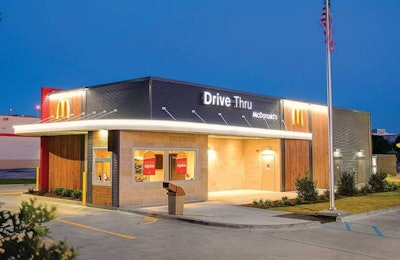
Shareholder activism has hit McDonald’s, as a holder of more than 2 million shares of its stock wants the fast-food chain to make changes to its policy on broiler welfare.
The shareholder is the New York State Common Retirement Fund, which handles the state and local retirement system for more than one million members.
How McDonald’s responds to this pressure from a trustee of the fund should concern not only those involved in the poultry industry, but also those whose retirement benefits are being managed by the company.
New York State Comptroller Thomas P. DiNapoli, a trustee of the fund that owns more than $340 million worth of McDonald’s stock, recently wrote a letter to McDonald’s President and CEO Stephen J. Easterbrook and Chairman Enrique Hernandez Jr., urging the company to make changes to its broiler welfare policy it announced in 2017.
McDonald’s already has a sound broiler welfare policy that other restaurant chains might be wise to consider looking to as an example. So what is DiNapoli’s hang-up with the policy? The company stated it will source chickens “that are raised with improved welfare outcomes.”
But two organizations – Global Animal Partnership (GAP) and Royal Society for the Prevention of Cruelty to Animals (RSPCA) – are pushing slower-growing breeds of chickens the organizations claim have improved welfare outcomes.
McDonald’s doesn’t give any mention to GAP or RSPCA, and DiNapoli said that is the issue at hand. He even goes as far as to say that McDonald’s policy “does not align with widely accepted best practices supported by science and rigorous research.”
He further stated that since animal welfare is important to consumers, it could hurt the company financially because they won’t see McDonald’s as going all-in on poultry welfare.
Argument seems short-sighted
One can argue the accuracy of DiNapoli’s claims that GAP and RSPCA standards are widely accepted best practices that are supported by science and research.
Did he look at all of the research presented from both sides of argument, or only those of animal rights activists that are devoting so many resources to promoting the GAP/RSPCA agenda? Or did he know that Crystal Lake Farms, a processor of GAP-approved chicken, cited "business reasons" for closing its plant in Jay, Oklahoma?
That’s only part of the equation. The other is his claim that the policy as stated could hurt the business.
Industry experts have shown that slower-growing broilers promoted by these groups are more expensive to produce, require more space and other resources in order to produce the same amount of chicken meat. If there is an industry-wide switch to such broiler breeds, the supply of U.S. chicken will be greatly reduced, which means the price of chicken will go up.
If a change is made, that leaves McDonald’s with two options:
- Absorb the additional cost of chicken products from slower-growing broilers, or
- Raise the cost of its chicken menu items and risk losing customers because it is cost-prohibitive to buy an order of GAP Chicken McNuggets or an RSPCA McChicken sandwich.
Neither scenario appears to be good for business for McDonald’s.
If my retirement funds were being managed by people that thinking such a change would be financially beneficial, I would be concerned.
My advice to McDonald’s: Don’t change a thing.


















